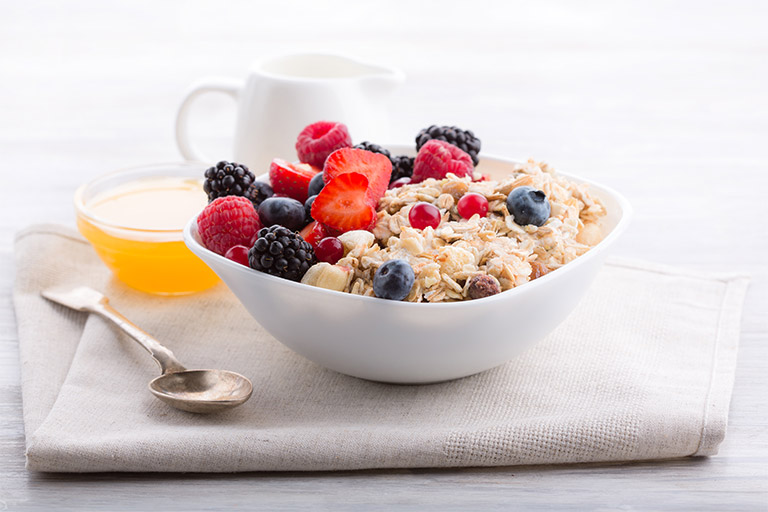Monsoon Diet: What to Eat and Avoid
The monsoon season brings a refreshing change with cooler temperatures and lush greenery, but it also presents a unique set of health challenges. The increased humidity and moisture in the air can lead to various infections, digestive issues, and water-borne diseases. Hence, maintaining a balanced diet during the monsoon is crucial for boosting immunity and keeping ailments at bay.
Here’s a list of foods for monsoon to eat and avoid to stay healthy.
What are the Foods to Eat During the Monsoon?
Seasonal Fruits
1. Jamun (Indian Blackberry): This purple fruit is delicious and packed with antioxidants and vitamins. Jamun helps improve haemoglobin levels and control blood sugar.
2. Pears: Low in calories and high in fibre, pears are great for digestion. They also provide a good amount of vitamin C, essential for boosting immunity.
3. Litchis: Litchis are rich in vitamin C and antioxidants, which help fight infections. They also hydrate and provide a sweet treat in the monsoon diet plan.
Vegetables
1. Bitter Gourd (Karela): Known for its detoxifying properties, bitter gourd helps clean the liver and improve digestion.
2. Bottle Gourd (Lauki): This versatile vegetable is light on the stomach and aids digestion. It can be used in soups, stews, and curries.
3. Green Leafy Vegetables: While green leafy vegetables like spinach and fenugreek are nutritious, they should be consumed well-cooked to avoid contamination from bacteria and parasites prevalent in the rainy season.
Spices and Herbs
1. Turmeric: Turmeric is known for its anti-inflammatory and antibacterial properties. Adding turmeric to meals can help boost immunity and prevent infections.
2. Ginger: Ginger aids digestion and helps prevent colds and coughs, which are common during the monsoon. Ginger tea provides a soothing and healthy beverage choice.
3. Garlic: Garlic has antimicrobial properties and boosts the immune system. Incorporating garlic into the monsoon diet can help in warding off infections.
Protein-Rich Foods
1. Pulses and Legumes: Lentils, chickpeas, and beans are easy to digest and good protein sources. They can be prepared in various forms, such as soups, stews, and salads.
2. Eggs and Fish: Ensure that eggs and fish are fresh and thoroughly cooked to avoid any risk of contamination. They provide high-quality protein and essential nutrients.
Grains
1. Brown Rice: Brown rice is more digestible than white rice and provides more fibre and nutrients. It can be included in place of white rice.
2. Oats: Oats are high in fibre and good for digestion. They can be prepared as a porridge, added to smoothies, or used in baking.
Probiotics
Yoghurt and Buttermilk: Probiotics like yoghurt and buttermilk improve gut health and boost immunity. Including these in the monsoon diet can help maintain a healthy digestive system.
What are the Foods to Avoid During the Monsoon?
1. Seafood
During the monsoon, it’s best to avoid seafood like fish and prawns as they are more susceptible to contamination and can cause food poisoning.
2. Fried and Junk Food
Fried foods such as samosas, pakoras, and other junk foods can cause indigestion and bloating. Their high oil content can lead to various digestive issues, especially during the humid monsoon season.
3. Street Food
Street food, particularly golgappas (pani puri) and chaat, can be contaminated and lead to infections. It’s best to keep in mind these foods to avoid during monsoon season to prevent water-borne diseases.
4. Excessively Spicy Food
While spices are beneficial in moderation, excessively spicy food can lead to stomach issues. Balancing the spice levels is essential to avoid digestive discomfort.
5. Raw Foods
Avoid raw salads and cut fruits from vendors due to contamination risks. Instead, consume leafy greens well-cooked and prepare salads and fruit bowls at home with thoroughly washed ingredients.
Additional Tips
1. Wash Fruits and Vegetables Thoroughly: Ensure all produce is sufficiently washed to remove dirt, pesticides, or potential contaminants. This is especially important during the monsoon season when the risk of contamination is high.
2. Maintain Hygiene: Keeping your kitchen and utensils clean is essential to prevent infections. Regularly disinfect surfaces and ensure proper storage of food items.
3. Eat Freshly Cooked Food: Avoid leftovers as bacteria multiply quickly in humid conditions. Consuming freshly cooked food minimises the risk of foodborne illnesses.
4. Hydration: Drink boiled or filtered water to avoid water-borne diseases. Herbal teas like ginger, mint, and chamomile can soothe the stomach and improve digestion.
Eating the right foods and avoiding potential risks can help individuals stay energetic, boost immunity, and enjoy the monsoon in good health. For a comprehensive health check-up and personalised dietary advice, consider booking a dengue or malaria test with Dr Lal PathLabs.
FAQs
1. Which food is best in monsoon?
Seasonal fruits like jamun and litchis, vegetables like bitter gourd and bottle gourd, and protein-rich foods like pulses and legumes are the best food for monsoon season.
2. Can we eat eggs in the monsoon?
Yes, one can eat eggs in the monsoon. Ensure they are fresh and thoroughly cooked to avoid contamination.
















